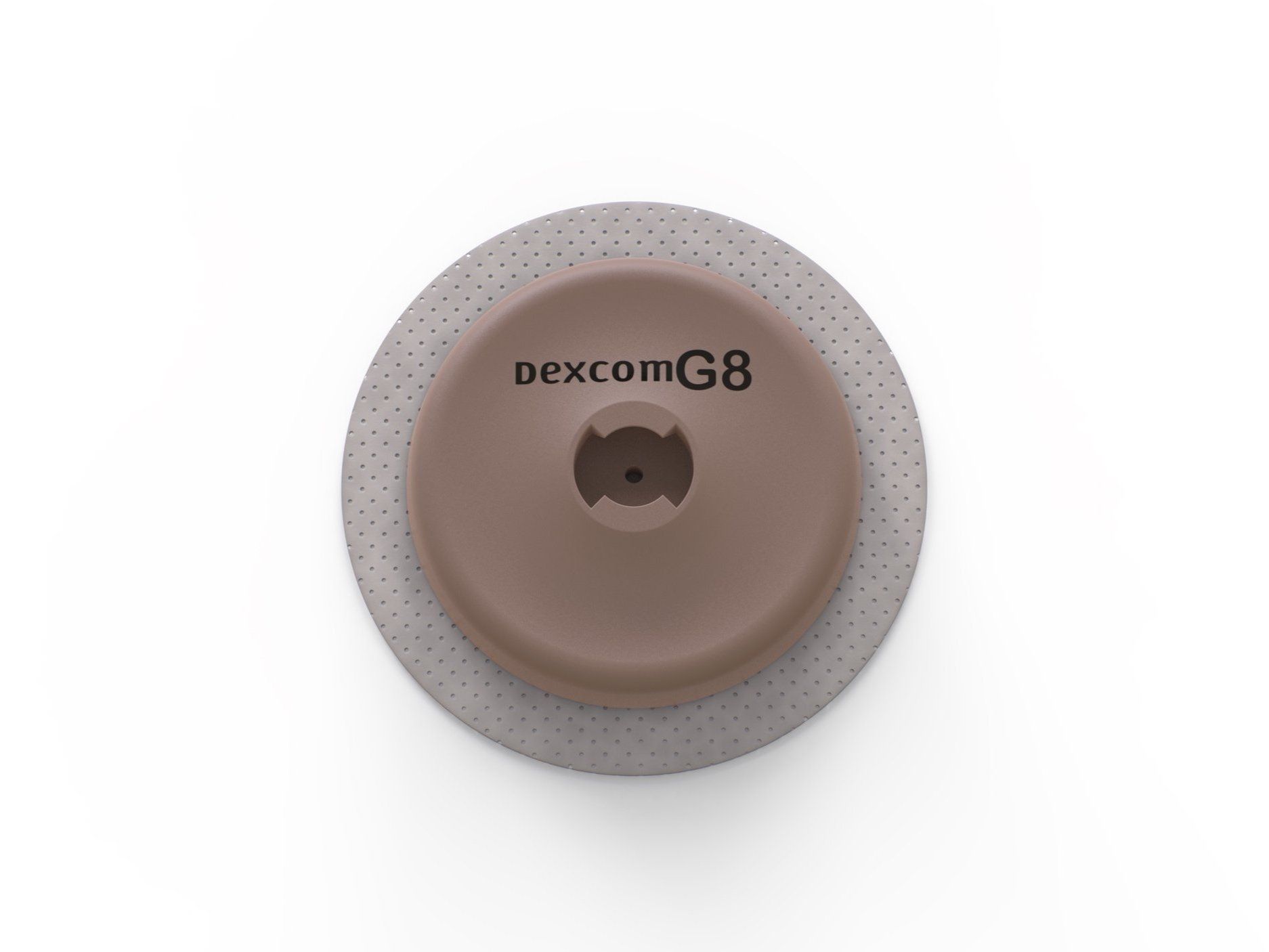Diabetes Q&A: Your Questions, Expert Answers
VitalFiberOne Naturals Inc. • December 20, 2024
Diabetes Q&A: Your Questions, Expert Answers

Diabetes Q&A: Your Questions, Expert Answers
When it comes to managing and understanding diabetes, individuals often find themselves sifting through a wealth of information. With so many opinions and ideas floating around, it can be tough to separate facts from myths. In this comprehensive Q&A, we’ll tackle some of the most commonly asked questions about diabetes mellitus, clarify common misconceptions, and provide expert-backed insights to help support a healthier lifestyle.
What Exactly is Diabetes Mellitus?
Diabetes mellitus is a chronic health condition that influences how your body turns food into energy. Normally, the body breaks down the carbohydrates you eat into glucose (a type of sugar) and releases it into your bloodstream. When blood sugar levels rise, the pancreas responds by releasing insulin. Insulin acts like a key, allowing blood sugar to enter cells where it can be used for energy. In diabetes, the body either doesn’t produce enough insulin (Type 1) or can’t use insulin effectively (Type 2). Over time, uncontrolled elevated blood sugar can lead to various complications, affecting the heart, kidneys, eyes, and nervous system.
How Many Types of Diabetes are There?
There are three main categories:
Type 1 Diabetes: Often diagnosed in childhood or adolescence, Type 1 diabetes is characterized by the body’s inability to produce insulin. People with Type 1 rely on daily insulin injections or an insulin pump to manage their blood glucose levels.
Type 2 Diabetes: The most common form, Type 2 diabetes occurs when the body becomes resistant to insulin or doesn’t produce enough. It often develops over time and can be managed through lifestyle modifications, oral medications, and sometimes insulin therapy.
Gestational Diabetes: Occurring during pregnancy, gestational diabetes typically resolves after childbirth. However, having it can raise a woman’s risk of developing Type 2 diabetes later in life.
What are the Symptoms of Diabetes?
Symptoms of diabetes mellitus can be subtle, especially in the early stages of Type 2 diabetes. Common signs include:
Frequent urination
Excessive thirst and increased fluid intake
Unexplained weight loss or gain
Extreme fatigue
Blurred vision
Slow-healing sores or frequent infections
If you experience any of these symptoms, consider seeking medical advice. Early detection plays a significant role in preventing complications.
How is Diabetes Diagnosed?
A healthcare provider can diagnose diabetes through several blood tests, including:
Fasting Blood Sugar Test: Measures blood sugar after an overnight fast.
A1C Test: Reflects average blood sugar levels over the past three months.
Oral Glucose Tolerance Test: Assesses how well your body processes a sugary beverage.
These tests help determine if you have normal blood sugar levels, prediabetes, or diabetes.
Can Diabetes be Prevented?
Not all forms of diabetes are preventable—Type 1 diabetes has a strong genetic component. However, many cases of Type 2 diabetes can often be prevented or delayed through lifestyle measures:
Healthy Diet: Emphasize whole grains, lean proteins, healthy fats, fruits, and vegetables. Limit refined sugars and processed foods.
Regular Exercise: Aim for at least 150 minutes of moderate-intensity exercise per week. Activities like brisk walking, cycling, or swimming improve insulin sensitivity and help maintain a healthy weight.
Weight Management: Even a modest reduction in body weight can significantly lower the risk of developing diabetes.
Routine Health Check-Ups: Regular screenings can catch prediabetes early, giving you time to intervene before it progresses.
How is Diabetes Treated?
Treatment depends on the type and severity of the condition:
Lifestyle Modifications:
A well-balanced diet, consistent exercise, stress management, and sufficient sleep are foundational strategies for controlling blood sugar.
Medications: People with Type 2 diabetes may take oral medications that help the body use insulin more effectively. Type 1 diabetes always requires insulin therapy, and some with advanced Type 2 may also need insulin.
Blood Sugar Monitoring: Tracking blood sugar at home allows for timely adjustments to diet, exercise, and medications. Continuous glucose monitoring (CGM) devices provide real-time insights.
Healthcare Team Support: Working closely with endocrinologists, primary care physicians, dietitians, and diabetes educators ensures you have a comprehensive care plan.
What Dietary Guidelines Should People with Diabetes Follow?
While individual needs vary, general dietary recommendations include:
Focus on High-Fiber Foods:
Whole fruits, vegetables, legumes, and whole grains help stabilize blood sugar.
Limit Added Sugars:
Cut down on sugary beverages, candy, and desserts.
Balance Macronutrients: Include lean proteins, healthy fats, and complex carbohydrates at every meal.
Portion Control:
Be mindful of portion sizes to prevent blood sugar spikes.
Working with a registered dietitian familiar with diabetes mellitus can help tailor a meal plan that fits your personal preferences, cultural background, and medical needs.
Can People with Diabetes Still Enjoy an Active Lifestyle?
Absolutely. Many athletes, performers, and everyday individuals with diabetes lead active, fulfilling lives. With proper blood glucose management, it’s possible to exercise regularly, travel, dine out, and enjoy hobbies. The key is consistent monitoring, planning, and communication with healthcare professionals.
How Does Mental Health Relate to Diabetes?
Chronic conditions like diabetes can take an emotional toll. Anxiety, depression, and diabetes-related distress are not uncommon. Managing mental well-being is as essential as monitoring blood sugar levels. Strategies include:
Counseling or Therapy: Professionals can help develop coping strategies and improve emotional resilience.
Support Groups: Connecting with others who share similar experiences can reduce feelings of isolation.
Mindfulness and Stress Reduction:
Techniques like meditation, yoga, or deep breathing can help stabilize mood and may positively influence blood sugar control.
Are There Any Recent Advancements in Diabetes Treatment?
Research continuously pushes the boundaries of diabetes care. Some exciting areas include:
New Medications & Therapies:
Advanced drug formulations and smart insulin are making blood sugar management more precise.
Technological Innovations:
Continuous glucose monitors and insulin pumps are more accurate and user-friendly than ever. Emerging artificial pancreas systems aim to simplify control.
Nutritional Science Breakthroughs:
Novel dietary fibers (like acacia fiber) and functional foods may support healthier glucose levels, offering natural ways to complement traditional therapies.
Personalized Medicine:
Genetic research may eventually allow for more individualized diabetes care, tailoring treatments to each person’s unique biological profile.
In Conclusion:
Understanding diabetes mellitus is the first step toward effectively managing it. By knowing the facts, making informed lifestyle choices, seeking professional guidance, and staying abreast of the latest medical advancements, you can take charge of your health. While diabetes requires vigilance, the tools and knowledge available today empower individuals to live full, active lives and reduce the risk of complications.

Continuous Glucose Monitors (CGMs) have transformed diabetes management by providing real-time glucose data, reducing the need for fingersticks, and enabling proactive treatment decisions. Among the leading CGMs are the Dexcom G8 and Medtronic Guardian 4, each offering unique features tailored to different user needs. This comprehensive comparison delves into their specifications, usability, accuracy, and integration capabilities to help you make an informed choice. Dexcom G8: Next-Generation Simplicity and Integration The Dexcom G8 represents Dexcom's latest advancement in CGM technology, building upon the strengths of its predecessors. Key Features Sensor Wear Time: 14 days Warm-Up Period: 30 minutes Calibration: Factory-calibrated; no fingersticks required Accuracy: Mean Absolute Relative Difference (MARD) of 8.2% Integration: Compatible with various insulin delivery systems and health apps Alerts: Customizable high and low glucose alerts Data Sharing: Real-time data sharing with caregivers via the Dexcom Follow app integrateddiabetes.com The G8's streamlined design and direct integration with smart devices, including Apple Watch, offer users a seamless experience. Its improved accuracy and reduced warm-up time enhance user confidence and convenience. Dexcom Medtronic Guardian 4: Precision and Pump Integration The Guardian 4 sensor is Medtronic's latest CGM, designed to work in tandem with their insulin pump systems, particularly the MiniMed™ 780G. Key Features Sensor Wear Time: 7 days Warm-Up Period: 2 hours Calibration: No fingersticks required Accuracy: MARD of 10.6% Integration: Seamless integration with Medtronic insulin pumps Alerts: Predictive alerts for impending highs and lows Data Sharing: Data viewable via CareLink™ Connect app The Guardian 4's strength lies in its integration with Medtronic's insulin pumps, enabling automated insulin delivery adjustments based on real-time glucose readings. This closed-loop system aims to maintain glucose levels within the target range more effectively. Side-by-Side Comparison Feature Dexcom G8 Medtronic Guardian 4 Sensor Wear Time 14 days 7 days Warm-Up Period 30 minutes 2 hours Calibration No fingersticks required No fingersticks required Accuracy (MARD) 8.2% % 10.6% Integration Multiple insulin delivery systems Medtronic insulin pumps only Alerts Customizable alerts Predictive alerts Data Sharing Dexcom Follow app CareLink™ Connect app Pros and Cons Dexcom G8 Pros: Longer sensor wear time reduces the frequency of replacements. Shorter warm-up period allows for quicker data availability. High accuracy enhances trust in glucose readings. Broad integration with various devices and apps offers flexibility. Cons: Integration with insulin pumps may require additional setup. Availability may vary by region and healthcare provider. Medtronic Guardian 4 Pros: Designed for seamless use with Medtronic insulin pumps, enabling automated insulin delivery. Predictive alerts provide early warnings for glucose excursions. No calibration required simplifies daily use. Cons: Shorter sensor lifespan necessitates more frequent replacements. Longer warm-up period delays initial data availability. Limited integration with non-Medtronic devices reduces flexibility. Dexcom User Experience and Testimonials Users of the Dexcom G8 appreciate its ease of use, accuracy, and the convenience of real-time data on their smart devices. The ability to share data with caregivers offers peace of mind, especially for parents of children with diabetes. Medtronic Guardian 4 users value the integration with Medtronic insulin pumps, noting improved glucose control and reduced manual interventions. However, some users mention the shorter sensor lifespan as a drawback. Conclusion Both the Dexcom G8 and Medtronic Guardian 4 offer significant benefits for diabetes management, but they cater to different user preferences and needs. Choose Dexcom G8 if you prioritize longer sensor wear time, quick setup, high accuracy, and flexibility in device integration. Choose Medtronic Guardian 4 if you are using or plan to use a Medtronic insulin pump and desire a fully integrated system with automated insulin delivery. Your choice should align with your lifestyle, treatment goals, and the devices you currently use or plan to use. Have you used the Dexcom G8 or Medtronic Guardian 4? Share your experiences and insights in the comments below. For more in-depth reviews and comparisons of diabetes management technologies, explore our other blog posts.

Learn how to manage diabetes with ease using VitalFiberOne™, a revolutionary solution that makes living with diabetes simple and stress-free. In this blog, we'll introduce you to a fun and interactive world education game that teaches you how to control your blood sugar levels, improve your overall health, and live a happy life with diabetes. Discover the benefits of VitalFiberOne™ and how it can help you take charge of your diabetes management.

Take control of your diabetes management with Glyco Guardian, the ultimate solution for a healthier you! In this blog, we'll show you how to make managing your diabetes easy, convenient, and most importantly, FREE! With Glyco Guardian, you'll have access to a comprehensive platform that helps you track your blood sugar levels, monitor your diet, and stay on top of your medication. Say goodbye to tedious paperwork and hello to a more streamlined approach to managing your diabetes. Join us as we explore the benefits of Glyco Guardian and discover how it can make a significant difference in your life.

Are you tired of feeling sluggish and run down? Discover the secret to boosting your energy levels with Acacia Fiber! This natural superfood is packed with nutrients and prebiotics that help support a healthy gut, increase energy production, and even aid in weight management. In this article, we'll dive into the amazing benefits of Acacia Fiber and how you can incorporate it into your daily routine to feel more energized, focused, and vibrant. Say goodbye to fatigue and hello to a more energetic you!








